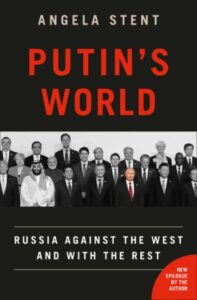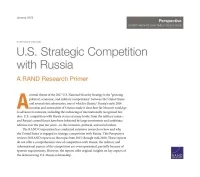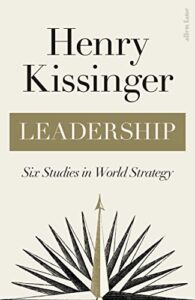President Vladimir V. Putin’s decision this week to expand the size of his military offered further evidence for a conviction taking hold in both Russia and Ukraine: The two sides are settling in for the long haul in a war that could last another year, or longer, The Times reports:
President Volodymyr Zelensky of Ukraine, warning his nation on Friday that the coming winter would be “the most difficult in our history,” is being bolstered by a largely unified West and a defiant populace in his insistence that there will be no compromise with an invading army. The conflict has settled into a war of attrition, with little movement along the front line in recent weeks, even as both Mr. Zelensky and Mr. Putin face growing political pressure to show results on the battlefield.
“Expectations that this will end by Christmas or that this will end by next spring” are misguided, said Ruslan Pukhov, a defense analyst who runs the Center for Analysis of Strategies and Technologies, a privately-owned think tank in Moscow.
 Putin is determined to shape the future to look like his version of the past, including a vision of Russia as a leader of the developing world, as was the Soviet Union during the Cold War, according to two leading experts.
Putin is determined to shape the future to look like his version of the past, including a vision of Russia as a leader of the developing world, as was the Soviet Union during the Cold War, according to two leading experts.
In #UkraineRussianWar, Vladimir Putin is determined to shape the future to look like his version of the past, Fiona Hill & @AngelaStent write for @ForeignAffairs https://t.co/MEzMRwLWML
— Democracy Digest (@demdigest) August 26, 2022
A sprawling network of nearly two dozen detention, interrogation, and processing centers, as well as what appears to be mass graves, were found in Russian-occupied Ukraine, say researchers from Yale University’s Humanitarian Research Lab. A report published on Thursday documents at least 21 facilities that appear to be part of a so-called “filtration system” in the Donetsk People’s Republic, territory in eastern Ukraine run by Kremlin-backed pro-Russian separatists.
Good legal compliance, good politics, good strategy, and morally good behavior are virtues that coincide in the protection of civilians from harm during war, say Sahr Muhammedally and Dan Mahanty, both of the Center for Civilians in Conflict, and the authors of The Human Factor: The Enduring Relevance of Protecting Civilians in Future Wars, which appears in the latest Texas National Security Review. They join TNSR executive editor Doyle Hodges to protect civilians without sacrificing military effectiveness.

Why Ukraine ‘is going to end up winning’
As the war in Ukraine passes the 6-month mark, questions abound as to whether Russia will soon escalate the brutality, how far Ukrainian forces intend to take the fight, plus the West’s long-term appetite for supplying arms and aid, Stanford’s Hoover Institution adds (above). Lt. Gen. Ben Hodges, former commanding general, US Army Europe, joins Hoover senior fellows H. R. McMaster and John Cochrane to discuss what to expect next in Eastern Europe’s war zone.
The safety of Ukraine’s journalists is among the many casualties of the war. Since the start of Russia’s invasion of Ukraine, at least 12 journalists have been killed while reporting, including seven Ukrainian journalists, and the Committee to Protect Journalists, is looking into the circumstances around three additional journalists, writes CPJ’s Jodie Ginsberg.
Putin wants to destroy Ukraine’s democracy to ensure that Russians don’t do what Ukrainians have already done: peacefully overthrow a corrupt dictator and build an open society., say two prominent observers.
 The challenge of autocratic states like Russia and China does not stem simply from their military capabilities, according to Dan Sullivan and Daniel Twining. It stems from the ideologies of these hostile regimes and their desire to contest U.S. power and create a new world order governed by authoritarian spheres of influence, they write for Foreign Affairs:
The challenge of autocratic states like Russia and China does not stem simply from their military capabilities, according to Dan Sullivan and Daniel Twining. It stems from the ideologies of these hostile regimes and their desire to contest U.S. power and create a new world order governed by authoritarian spheres of influence, they write for Foreign Affairs:
Chinese President Xi Jinping and Russian President Vladimir Putin pursue revisionist policies of aggression both to bolster domestic autocratic control and to dismantle the foreign network of democratic alliances led by the United States. Their ambition is to push the United States out of their regions, neutralize or subjugate their neighbors, erode the alliance system that secures the U.S. homeland, and make the world safe for autocracy….

Credit: ACUS
The United States knows what works, add Sullivan, a Republican Senator for Alaska, and Twining, President of the International Republican Institute (IRI): maintaining peace through strength, promoting free markets and free people, and having confidence in the Cold War strategist George Kennan’s insight that one-man, one-party rule “bears within it the seeds of its own decay.” Prevailing in this geopolitical and ideological contest will require a new level of strength, ingenuity, and commitment to universal democratic values. RTWT
The European Union is vilified by the Kremlin and its propagandists as the seat of all evil, the home of same-sex marriage, LGBT+ rights, democracy, respect for human and individual rights, and above all, “Russophobia,” notes Tomasz Kamusellais, Reader in Modern Central and Eastern European History at the University of St Andrews in Scotland.
Yet while Moscow wages a bloody war in Ukraine, Russian citizens continue to take advantage of the opportunity to visit the bloc. The EU must now speak with one voice by enforcing the ban in support of a besieged Ukraine, he writes for New Eastern Europe, a partner of the National Endowment for Democracy (NED).

 Arch-realist Henry Kissinger, author of Leadership: Six Studies in World Strategy, has explained that his recent remarks about Ukraine were misconstrued, The National Interest’s
Arch-realist Henry Kissinger, author of Leadership: Six Studies in World Strategy, has explained that his recent remarks about Ukraine were misconstrued, The National Interest’s 





